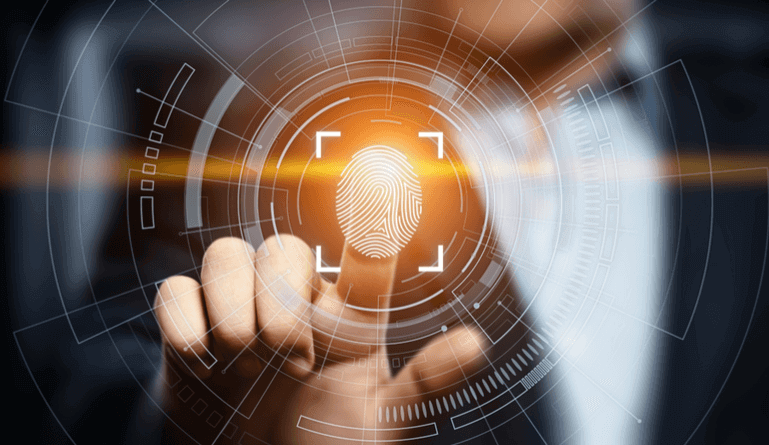A digital identity is the body of information about an individual, organization, or electronic device that exists online. It comprises of all the unique identifiers and uses patterns that make it possible to detect individuals or their devices.
This information is often used by website owners and advertisers to identify and track users for personalization and to serve them targeted content and advertising.
Why is Digital Identity Important?
Digital identities(1) and management thereof are crucial to the growth and expansion of your business. Identity management was historically always focused on internal users of a business such as employees, contractors, or those within the supply chain. It was about ensuring that these users had the correct levels of access needed to perform their jobs.
However, the ability to understand and harness the power of external digital identity is pivotal to effectively scale businesses in this era of digital transformation. Businesses are now focusing heavily on external, user-centric identity platforms that provide the tools to build comprehensive customer profiles across multiple channels.
The purpose – to increase engagement, personalize content, provide simple and secure sign-up and sign-in services, drive revenue, and improve user satisfaction. By building a strong digital identity, businesses can easily create an accurate and complete view of the customer.
Categories of Digital Identity
Primarily, there are 4 categories of digital identity:
-
Digital identity as a credential, which simply means a digitized version of an individual’s:
- Name
- Date of birth
- Nationality
- Residence
- Passport, health, or driver’s license numbers
- Social media
- Career and networking sites
- Dating apps
- Website visits
- Email newsletters opened
- Webinar registrations
- Online purchases
-
Digital identity as a character represents information such as:
- Profiles for social media
- Career and networking sites
- Dating apps
-
Digital identity as a user, which includes:
- Website visits
- Email newsletters opened
- Webinar registrations
- Online purchases
-
Digital identity as reputation, which includes:
- Criminal records
- Employment histories
- Degrees and diplomas
- Credit scores
- Testimonials, reviews, and recommendations
How Digital Identities Can Help Businesses
Creating and managing digital identities can help businesses in various ways. Some of these are:
-
Banking
By creating secure digital identities for all of the customers, businesses can protect customer login and transaction details. This security is extremely crucial for eCommerce platforms and fintech platforms as this is the basis on which these businesses are set up.
-
eCommerce
As an eCommerce platform, it is important to secure your shopper’s digital identities to reduce fraud losses and get then to add manual reviews. It also helps them to pick up right where they left off, thus enhancing the user experience.
-
Gaming & Gambling
By having digital identities whilst gaming or gambling online on their platforms, businesses can block collusive play and comply with regulations.
-
Government
A digital identity for a business can help protect critical infrastructure and secure remote logins, thus avoiding any federal conflicts or litigation. Moreover, federal business units can also keep their data safe and secured by creating digital identities for all the employees and concerned parties.
-
Healthcare
Hospitals and health care institutions must create digital identities of patients, doctors, and other employees so as to store all sensitive information. This is particularly helpful in the case of patients, as the digital identity can store all medical history that can be made readily available anywhere and at any time.
-
Insurance
Insurance companies and agents can store all client information in digital identities. This helps accelerate the underwriting process and helps prevent insurance fraud of any kind.
-
Lending
Financial and non-financial institutions must all make use of digital identities in order to draw up credit histories, credit records, and credentials of potential and existing borrowers. This helps them prevent fraud and support instant loan approvals.
-
Media
Media and public relations managers make use of digital identities in order to prevent fraudulent accounts and bogus content, as well as ensure that they get the most bang out of every buck spent on promotion and advertising.
-
Payments
Fintech and Digital payment platforms make use of digital identities in order to accelerate secure transactions and improve merchant onboarding.
-
Travel
The travel and hospitality industry makes use of digital identities to prevent fraudulent reservations and stolen rewards redemption.
How Can You Help Protect Your Digital Identity?
As a business, making use of digital identities is extremely crucial. But what is more important is that your own digital identity is protected. Here are a few practices that your IT Team must make use of in order to ensure the security of your digital identity:
-
Limit sharing your Social Security number
Whether you’re at a college, at school, or online, only share your social security number when it is absolutely required. Refrain from doing so as far as possible.
-
Use strong and unique passwords on each of your online accounts
As a business, you would certainly have various accounts online for social media, payments, web development, etc. Make sure you have strong and unique passwords for all and that you’re using a dedicated password manager instead of simply sharing credentials with employees. It would be wise to change passwords periodically for enhanced security.
-
Don’t use unprotected webpage
While surfing the Web, only use secure and protected web pages. Unsecured web pages may end up comprising your system data.
-
Don’t share your login credentials with others
As mentioned above, do not share password and login credentials with all your employees. Instead, make use of a dedicated password manager and share auto-login access only.
-
Shred documents containing personal information before discarding
If you gave physical documentation of sensitive information, make sure you discard it properly in an uncompromising manner.
-
Don’t use public or unprotected WIFI networks
Avoid making use of public or unknown WIFI networks. If you do absolutely have to use one make sure you’re using a solid VPN service.
-
Review permissions and privacy policies
Whenever you browse a webpage, make sure you don’t just hit ‘accept’ on the permissions and privacy policies. Go through them thoroughly and make sure you’re not compromising your information or data in any way.
-
Update your software regularly
Make sure all of your IT infrastructures are up to date. Update software on all systems regularly and make sure they are secured properly.
Benefits of Digital Identity
-
Improving efficiency
Digital identities safeguard all of your data under one organized folder, thus enhancing operational efficiency manifold.
-
Minimizing costs and regulations
Digital identities help businesses minimize costs and avoid litigation issues drastically.
-
Improving security and enhancing privacy
With proper digital identity management, you can dramatically improve the security and privacy of your IT infrastructure.
-
A better customer experience
As a result of faster turnaround times and fewer touchpoints, you can make sure your customers have a better and more enhanced experience.
-
High levels of accuracy
As all of the data is available in one place as and when required, digital identities increase accuracy and ensure better compliance as manual keying errors are reduced.
Disadvantages of Digital Identity
Even though it provides a number of benefits, they aren’t all rainbows and unicorns. The biggest disadvantage of a digital identity is identity theft and misuse – The creation of a digital identity usually involves using actual details about the person’s real identity, information that in the wrong hands can prove dangerous. This can be a major drawback of having dangerous identities.
What Is Digital Identity in Blockchain?
Traditional digital identity management systems available in the market today are fragmented, insecure, and exclusive. This has paved the way for the creation and establishment of blockchain units for digital identity management.
Blockchain enables more secure management and storage of digital identities by providing unified and tamper-proof infrastructure. It provides various key benefits to enterprises, users, and IoT management systems.
Blockchain-enabled digital identity management systems could be used to eradicate current identity management issues such as inaccessibility, data insecurity, and fraudulent identities.
Digital Identity Trends In 2020
As we’re getting ready to get back to business, it is important to ensure proper digital identity management.
- Registration Forms
- Forgotten Passwords
- Username vs Email ID
- Passwordless Login
- Multi-Factor Authentication
- Customer Return Rate
- Login Preference by Age
- Login Preference by Gender
- Social Login Preferences by Geography
- Login Preference by Businesses
Difference Between Authentication and Digital Identity
| Authentication | Digital Identity |
|---|---|
| Authentication is the process of proving the digital identity of a person, device, or other entity in order to grant the appropriate level of authorization. | It consists of authentication, authorization, and well-defined criteria that the digital identity can be trusted. |
| Authentication is unidimensional, and is done by asking the user for information and comparing it to the information associated with that identity or account. | Identity is multidimensional. It encompasses multiple factors, including authentication. |
Final Thoughts
The increased demand for flexibility and agility in work, along with more and more data and privacy regulations – all of these now require businesses to meet the growing needs of a user base with multiple devices and from various locations to access numerous applications.
As teams “seamlessly” shift from working in the office to working from home, it’s easy to overlook the importance of digital identities. However, a good digital identity management program enables effective collaboration and breaks down barriers to share information and work safely together across company boundaries. It all helps ease the process of business growth and expansion.







